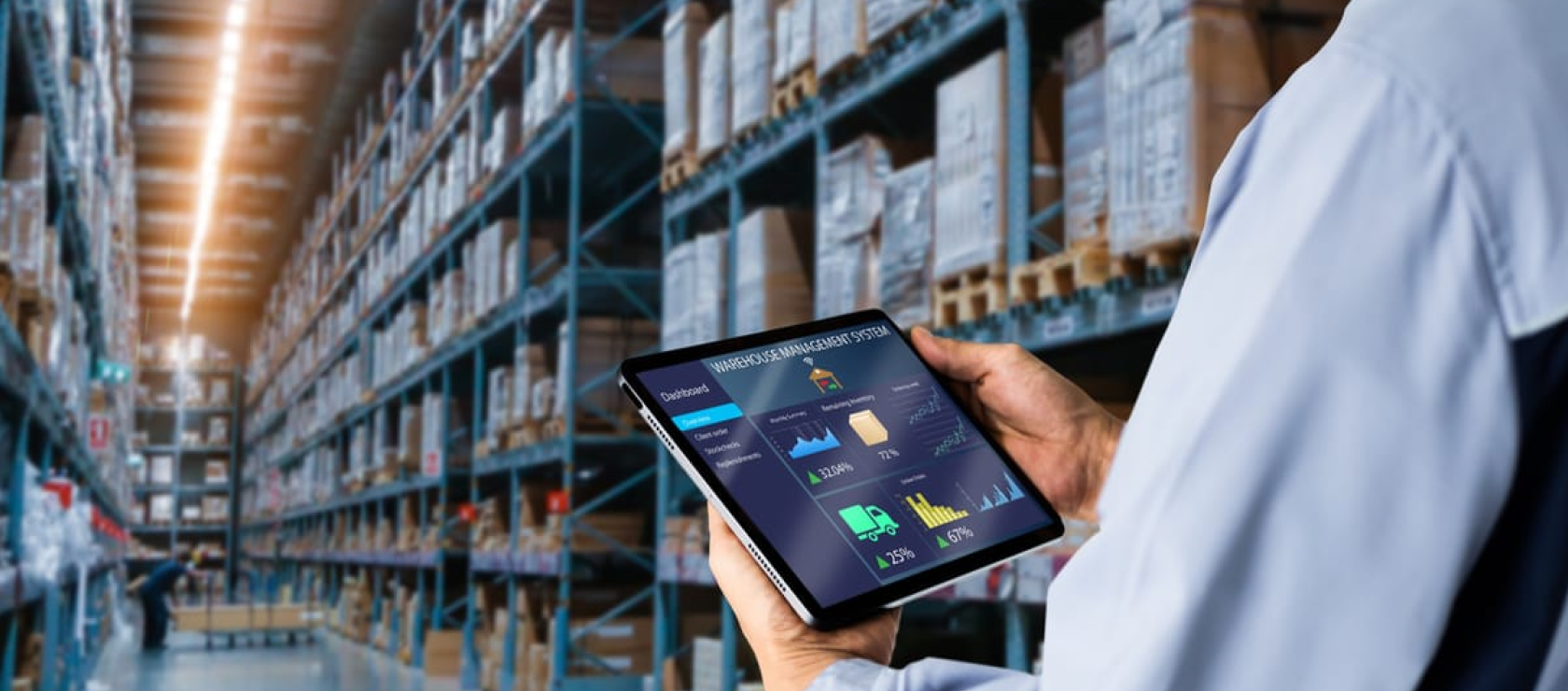The Changing Face of Inventory Management in Singapore’s Digital Economy
Singapore’s business environment is undergoing a major transformation as companies move toward digital operations. With the rise of e-commerce, logistics, and retail technology, the demand for efficient inventory management solutions has grown significantly. Many small and medium enterprises (SMEs) are realizing that traditional, manual inventory methods are no longer enough to keep up with consumer expectations and fluctuating demand. Paper-based systems or basic spreadsheets can lead to costly errors, stockouts, and wasted resources.
Automation and cloud-based technologies have become the cornerstone of modern business operations in Singapore. By implementing smart inventory software, businesses can track stock levels in real time, streamline ordering processes, and eliminate unnecessary manual work. This shift also aligns with Singapore’s Smart Nation initiative, which encourages digital transformation across all industries. Businesses that adopt efficient inventory management in software Singapore gain a competitive advantage, ensuring they meet customer demands accurately and promptly while reducing operational costs.
Understanding Inventory Management Software: What It Really Does
Inventory management software is designed to simplify how businesses handle stock, orders, and supply chain operations. It’s not just a digital ledger — it’s a full system that provides end-to-end visibility of all inventory movements. The software tracks products from the moment they arrive at a warehouse until they are delivered to the customer. This allows business owners to monitor stock levels, automate reordering, and access valuable data analytics that inform smarter business decisions.
Modern systems also leverage artificial intelligence (AI) and predictive analytics to forecast demand based on sales patterns and seasonal trends. These tools help prevent overstocking or understocking, keeping inventory balanced and aligned with actual demand. Furthermore, the best inventory management software integrates seamlessly with accounting systems, e-commerce platforms, and customer relationship management (CRM) tools, ensuring data flows smoothly across departments. For Singaporean businesses, this means greater control, reduced waste, and improved accuracy across the entire supply chain.
Why Inventory Management in Software Singapore Is Essential for Modern Businesses
Singapore’s economy thrives on trade, efficiency, and innovation. With limited storage space and high logistics costs, managing inventory accurately is a top priority for both small retailers and large corporations. The use of software ensures that every product is tracked with precision, from procurement to delivery, eliminating the guesswork and manual effort often associated with traditional methods.
Implementing inventory software also reduces human errors that can cause financial loss. Real-time tracking enables instant access to stock levels, so businesses always know what’s available and when to restock. Automated alerts notify managers about low inventory or expired products, preventing missed sales opportunities. Additionally, digital systems improve decision-making by providing accurate insights into sales trends and supplier performance. When businesses can trust their data, they can respond faster to market changes and customer demands.
The result is improved customer satisfaction, as products are always available when needed, and fulfillment is quick and accurate. For a market as competitive as Singapore, where speed and reliability are vital, efficient inventory management in software Singapore is no longer optional — it’s essential.
Core Features to Look for in Inventory Management Software in Singapore
When choosing inventory management software, businesses should focus on systems that fit their size, industry, and workflow needs. The right software enhances productivity, improves coordination, and reduces administrative workload. Here are some core features that make a big difference:
- Cloud-based accessibility – Enables owners and staff to manage inventory anytime, anywhere.
- Integration with POS and accounting systems – Keeps financial records and sales data synchronized.
- Multi-location inventory control – Essential for businesses operating across different warehouses or branches.
- Barcode and RFID scanning – Speeds up product tracking and minimizes errors.
- Real-time analytics and reporting – Provides insights into sales trends, supplier performance, and profitability.
These features empower businesses to manage their inventory more efficiently and make data-driven decisions. Whether running a local retail shop or an online store serving international customers, having access to real-time data ensures better planning and faster response times.
How Inventory Management Software Improves Business Efficiency and Profitability
Efficiency is the backbone of profitability. With smart inventory software, companies can optimize stock levels, streamline operations, and enhance cash flow. By reducing stockouts and overstocks, businesses can save both time and money. Predictive analytics help forecast future demand, ensuring resources are allocated wisely.
Collaboration between departments becomes easier because everyone can access the same updated data. Warehouse staff, accountants, and sales teams can all work from a unified platform. This reduces miscommunication and shortens the decision-making process. Additionally, automation eliminates repetitive manual tasks, allowing staff to focus on higher-value work like customer service or strategic planning.
Beyond efficiency, smart inventory systems also promote sustainability. By optimizing stock levels, companies can avoid excess production and reduce waste. This not only supports environmental goals but also aligns with Singapore’s commitment to sustainable business practices. Ultimately, using inventory management in software Singapore drives profitability by combining accuracy, speed, and sustainability in one system.
Top Inventory Management Software Solutions in Singapore
Singapore offers a wide range of inventory management software options suited for different business sizes and industries. TradeGecko (now QuickBooks Commerce), Zoho Inventory, and Oracle NetSuite are among the most trusted names. Each offers features tailored to local market needs, such as multi-currency support and integration with regional logistics providers.
TradeGecko is known for its user-friendly interface and e-commerce integrations, making it ideal for SMEs and online retailers. Zoho Inventory provides strong automation and inventory control at an affordable price, suitable for growing businesses. For larger enterprises, Oracle NetSuite delivers advanced analytics and scalability, supporting complex supply chain operations.
When choosing software, Singaporean businesses should consider factors like:
- The size and nature of their business
- Budget and pricing model (subscription vs. one-time license)
- Scalability and integration with existing tools
- Local customer support availability
Choosing the right solution ensures that the software complements existing workflows and delivers measurable business impact.
Implementing Inventory Management Software: Steps to a Smooth Transition
Transitioning from manual processes to software-based inventory management requires thoughtful planning. Businesses should begin by assessing their specific needs, such as product types, sales volume, and distribution channels. Once these are clear, selecting a software that aligns with those needs becomes easier.
Training employees is a crucial step to ensure everyone can use the system effectively. Staff should understand how to input data, interpret analytics, and use the software’s automation features. Data migration should also be handled carefully to prevent loss or duplication. Companies should back up old records before transferring them into the new system.
During implementation, it’s important to avoid common mistakes like underestimating training time or skipping testing phases. Businesses should work closely with software providers for guidance and technical support. Regular updates and maintenance ensure the system stays current with changing technology and business demands.
The Future of Inventory Management in Singapore’s Software-Driven Market
As Singapore continues to push for digital transformation, inventory management will become even more advanced. The integration of artificial intelligence (AI), Internet of Things (IoT), and automation is expected to revolutionize how inventory is tracked and managed. Businesses will soon be able to use sensors and robotics to monitor stock in real time and automate replenishment without human intervention.
AI-powered demand forecasting will further enhance decision-making accuracy, helping companies anticipate consumer needs months in advance. With sustainability becoming a global focus, inventory systems will also prioritize reducing waste and energy consumption. These innovations will make Singapore’s business environment even more efficient, competitive, and eco-friendly.
For companies seeking long-term growth, embracing technology is no longer a choice but a necessity. Those that leverage advanced inventory management in software Singapore today will be better equipped to lead tomorrow’s markets.
Frequently Asked Questions (FAQ)
What is the main advantage of using inventory management software in Singapore?
The primary advantage is real-time visibility. Businesses can track stock levels instantly, make accurate forecasts, and automate reordering, leading to better efficiency and reduced costs.
Is inventory management software suitable for small businesses?
Yes. Many software solutions in Singapore are scalable and affordable, offering essential tools that help small businesses streamline operations and grow sustainably.
How much does it typically cost to implement inventory software in Singapore?
Costs vary based on features and business size. Subscription-based systems can start from as low as SGD 50 per month, while enterprise-level software may require customized pricing.
Can inventory management software integrate with my existing POS system?
Most modern solutions are designed for integration with POS, accounting, and e-commerce platforms, ensuring smooth data flow across business systems.
What should I consider when selecting a software provider in Singapore?
Look for local support, scalability, ease of use, and integration options. It’s also wise to request a demo before committing to ensure the system fits your business needs.
Takeaway
Inventory management software has become an indispensable tool for businesses in Singapore looking to thrive in the digital age. It enhances efficiency, improves customer satisfaction, and provides the data intelligence needed to make informed decisions. Whether you’re a small retailer or a growing enterprise, investing in the right software helps you stay competitive, sustainable, and future-ready. By leveraging technology, Singaporean businesses can transform inventory challenges into opportunities for innovation and growth.







